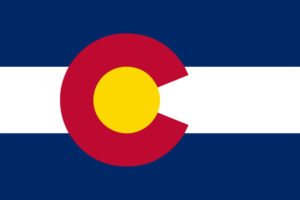Are you daydreaming about sitting in front of a warm, crackling fire on a cold, snowy winter’s evening? Before those cold, snowy evenings arrive, there are precautions you should take to be sure that your fireplace  is safe and damage free. If you live in central Colorado, the Chimney Doctors of Colorado have the know-how and the tools to make sure that you can enjoy your fireplace without a care in the world. Keep reading for just a few of the chimney problems that are easily handled by the Chimney Doctors.
is safe and damage free. If you live in central Colorado, the Chimney Doctors of Colorado have the know-how and the tools to make sure that you can enjoy your fireplace without a care in the world. Keep reading for just a few of the chimney problems that are easily handled by the Chimney Doctors.
Creosote Build-up:
The most common problem that homeowners with fireplaces deal with is creosote build-up. Creosote is a tar-like, sticky substance that coats the inside of your chimney; this is caused by burning wood in your fireplace. Because creosote is highly flammable, the heat from additional fires in your fireplace can cause it to ignite and cause a fire in the chimney itself. Because this creosote build-up is so flammable, the Chimney Safety Institute of America recommends that you have your chimney inspected and cleaned on a yearly basis by CSIA certified inspectors like those at Chimney Doctors of Colorado.
Chimney Failure:
Inspectopedia reports some of the following causes of chimney failure:
- Chimney movement due to improper chimney construction can cause leaning, cracks in the masonry, or defective footing.
- Water leaks at the top of the chimney can cause water to seep down into the masonry, and in climates with freezing temperatures, this water can freeze, causing cracks in the chimney to occur.
- If, during construction, not enough space for movement was left as the interior of the chimney heats up, thermal expansion cracks can occur.
These are only a few causes of chimney failure, and these are only a few of the issues that the Chimney Doctors of Colorado can handle with expertise and efficiency.
Freeze-Thaw Cycle
Mortar is a porous material, and over time, precipitation (snow, rain, sleet) will permeate into the mortar. In some parts of the country, where the winters are mild, this doesn’t have much of a negative effect. In other parts of the country, like Colorado where the winters can be harsh, this is a different story. According to pothole.info, when water freezes, it needs about ten percent more space to handle the expansion that takes place. When water has permeated the mortar in your chimney, this means that cracks that seemed minute become bigger. When a thaw occurs, there is now an even larger crack in your mortar, a bigger space for precipitation to permeate. Simply stated, going from freezing to thawing to freezing again can have a devastating effect on your chimney, especially on the mortar. This is why waterproofing is important.
Experience and Expertise
Here at Chimney Doctors of Colorado we’re experienced in caring for the chimneys in LIttleton, Bailey, Fairplay,and surrounding areas. Our professional sweeps and annual inspection can nip chimney problems in the bud, before they become expensive and disruptive. Call them today and make your daydreams come true!
